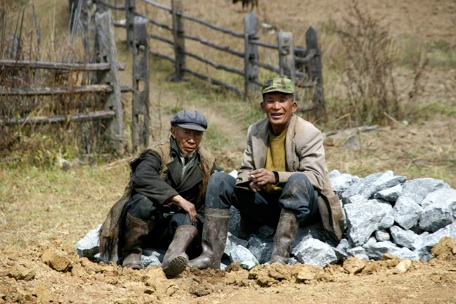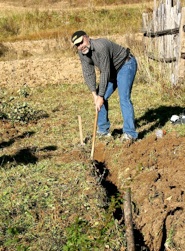
China Week 2005 Project





PHOTO ALBUMS

MY OTHER LINKS

Lepers.pdf (an article from United World, March 2006, about this initiative)
EXTERNAL LINKS


Each year in the first week of November, Li Po Chun United World College in Hong Kong suspends classes for one week so that all students can travel into China to do service work, to extend themselves physically and to begin to understand China's deep and rich culture in areas away from tourist centres.
In the first week of November 2005, a group of 15 students from 7 countries - Botswana, Canada, Denmark, Fiji, Finland, Hong Kong, Sweden - travelled to Yunnan province in south-west China with the Principal as part of this program.
We had three specific objectives. First, we aimed to build self-cleaning toilets for the lepers who had been sent to live in a remote village called Ma Chan, situated high in the eastern Himalaya mountains at 3200 metres between Qiaotou and Zhongdian.
The second objective was to trek 24 km through Tiger Leaping Gorge, a spectacular if arduous walk in the upper reaches of the Yangtze River. The founder of the United World Colleges, Kurt Hahn, had emphasised this type of outdoors experience as a way of pushing forward the boundaries of one's own expectations of oneself. As he famously commented, "Your disability is your opportunity - there is more in you than you think!".
The third objective was to learn more about the minority Naxi nationality culture that dominates the ancient town of Lijiang. One of the reasons that many students choose to study at Li Po Chun United World College in Hong Kong is to discover more about China's diverse cultures, and Lijiang provides a rich resource of cultural experiences.
We travelled to Lijiang from Hong Kong by a combination of train, plane and overnight bus via Shenzhen and Kunming. Although tired, the group enjoyed the streets and laneways of Lijiang, which are some of the best preserved old Chinese streetscapes remaining in China - fully deserving of their World Heritage listing. Highlights of the day were breakfast at the Sakura Cafe, exploring Mu's palace and enjoying the view across the old town from the hilltop pagoda.
The next day, the journey to the leper's village began with a two hour bus trip to Qiaotou (a small town at the entrance to Tiger Leaping Gorge), followed by a one and half hour 50 km climb up twisting dirt roads to the village of Ma Chan.
Ma Chan is a remote village off the road between Qiaotou and Zhongdian, situated at 3200 metres above sea level at the eastern end of the Himalayas. The residents comprise former leprosy sufferers from many nationalities who have been forcibly relocated there under a Chinese government policy that requires lepers to be separated from mainstream society. Of the residents, only the head man may ever leave the village. The children of the lepers (who have never had leprosy) grow up in the village without access to schooling, as no teacher is willing to go there. Like their parents, the children may never leave the village. Residents of other towns know about the village, but because of ignorance and prejudice, they are too terrified to go there.
The 15 students went to the village with the aim of building new self-cleaning toilets for the lepers. This required buying the materials for the toilet (as the villagers have no source of money), laying the foundations of the walls in preparation for professional laying of bricks, digging a 5 metre by 1.5 metre pit to a depth of over one metre, and digging a 250-metre long trench from a hillside spring down to the toilet for a water supply to flush the toilet. The water supply was needed as many of the residents cannot lift a bucket or flush a toilet because of their disabilities, so a basic automatic flushing system was needed for hygiene.
As the pictures (see link above left) show, the students worked hard to achieve their goals, and left a sum of money to pay professional tradesmen to finish the tasks that their unskilled labour could not perform. The students also donated large quantities of bandages, antiseptics and pain relief medicines that they had brought with them from Hong Kong, as the village receives no government assistance. The villagers were extremely grateful for the medical supplies, and also for the building materials that they could never afford themselves, and for the labour that they could not perform because of their disabilities.
After two days of hard physical work - digging, hoeing, trenching, shovelling, carrying - we returned to Qiaotou and, following an overnight rest at Margo's Gorged Tiger Cafe, began a two-day 24 km trek through Tiger Leaping Gorge. The weather was superb and the views magnificent (see the images using the links above left), including the unforgettable display of stars in the crystal clear night sky.
After the trek, we spent a day relaxing in Lijiang. Highlights of the last day included Black Dragon Lake and the local markets, although watching dogs being slaughtered and torched to eat was a bit much for some.

Serving Lepers in South-West China










